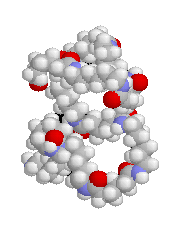Sustainable Polymers: Eco-Friendly Solutions for the Future
Sustainable Polymers: Eco-Friendly Solutions for the Future
Blog Article
Discovering the Varied Applications and Benefits of Polymers in Different Industries
Polymers, with their diverse array of homes and capabilities, have actually become indispensable in numerous markets, each gaining special advantages from their application. From boosting safety and efficiency in the automobile sector to reinventing medical gadgets in the healthcare market, polymers play a pivotal function.
Automotive Sector Applications
Polymers play a crucial function in improving the efficiency and longevity of various parts within the automobile market. These versatile products are extensively utilized in the production of different parts, varying from interior elements to under-the-hood applications. One famous use of polymers in the auto market is in the production of light-weight components. By replacing standard steel components with polymer-based choices, cars can attain better fuel effectiveness without endangering on strength or security.

Medical Care Sector Benefits
In various health care applications, the advantages of using polymers are extensively recognized for their diverse variety of useful residential or commercial properties. Polymers play a crucial function in the health care market as a result of their convenience, biocompatibility, and cost-effectiveness. Among the key benefits of polymers in medical care is their capacity to be customized to particular needs, such as adaptability, durability, and biodegradability, making them perfect for a variety of medical applications.
Polymer-based materials are extensively made use of in clinical gadgets, such as catheters, implants, prosthetics, and medication shipment systems, because of their biocompatibility and ability to mimic all-natural cells. These materials can decrease the threat of allergic responses or beings rejected, improving individual safety and results. Furthermore, polymers are lightweight, making them ideal for wearable clinical devices and guaranteeing patient convenience.
Additionally, polymers enable the development of ingenious treatment techniques, such as hydrogels for tissue design and nanocomposites for targeted drug delivery. Their simplicity of processing and sanitation makes them crucial for preserving high criteria of hygiene in medical care settings. On the whole, the diverse benefits of polymers add substantially to advancements in medical modern technology and person treatment.
Ecological Benefits of Polymers

Furthermore, polymers can contribute to energy cost savings as a result of their light-weight nature. In sectors such as transportation, lightweight polymer materials can help in reducing gas intake and greenhouse gas exhausts. Additionally, polymers can make it possible for the growth of energy-efficient items such as insulation materials that enhance power preservation in structures.
Additionally, polymers play an essential role in reducing water contamination. visit this web-site The usage find more information of polymer-based filtration systems can efficiently get rid of contaminants and pollutants from wastewater, protecting water resources and ecological communities. Generally, the ecological advantages of polymers make them valuable properties in advertising sustainability and environment-friendly techniques throughout numerous industries.
Polymers in Electronic Devices and Modern Technology
Considering the boosting need for ingenious and sustainable options in modern-day markets, the assimilation of innovative polymer technologies in the world of electronics and modern technology has actually arised as a crucial approach for driving effectiveness and efficiency. Polymers have actually changed the electronic devices industry by making it possible for the manufacturing of lighter, a this link lot more flexible, and sturdy digital devices. From smart devices to medical gadgets, polymers play a crucial duty in improving product style and functionality.
One considerable advantage of polymers in electronics is their shielding properties, which assist shield delicate digital components from ecological variables and electrical disturbance. Additionally, polymers are necessary in the development of versatile display screens, wearable technology, and published electronics, using endless possibilities for producing clever and interconnected devices.
Moreover, the usage of polymers in digital packaging has led to improvements in miniaturization and thermal management, improving the overall performance and dependability of electronic systems. As technology remains to advance, the versatility and flexibility of polymers will undoubtedly drive additionally innovation in the electronics industry, shaping the future of innovation.
Duty of Polymers in Construction and Facilities
Polymers supply countless advantages in the construction sector due to their convenience, toughness, and cost-effectiveness. One crucial function of polymers in construction is their usage in finishings and sealants, providing defense against environmental factors such as dampness, UV radiation, and rust.
Moreover, polymers play an essential duty in sustainable construction practices by making it possible for the advancement of energy-efficient structures. Protecting materials made from polymers aid control interior temperatures, minimizing the need for home heating and cooling systems and inevitably lowering power consumption. The usage of polymer-based composites in facilities tasks such as bridges and roads improves their long life and decreases upkeep costs. Overall, the consolidation of polymers in building and infrastructure showcases their substantial effect on modern design practices.
Conclusion
In final thought, polymers play an essential duty in numerous markets such as vehicle, healthcare, ecological, electronic devices, and building. From boosting fuel performance in vehicles to improving medical tools, polymers use countless advantages.
Report this page